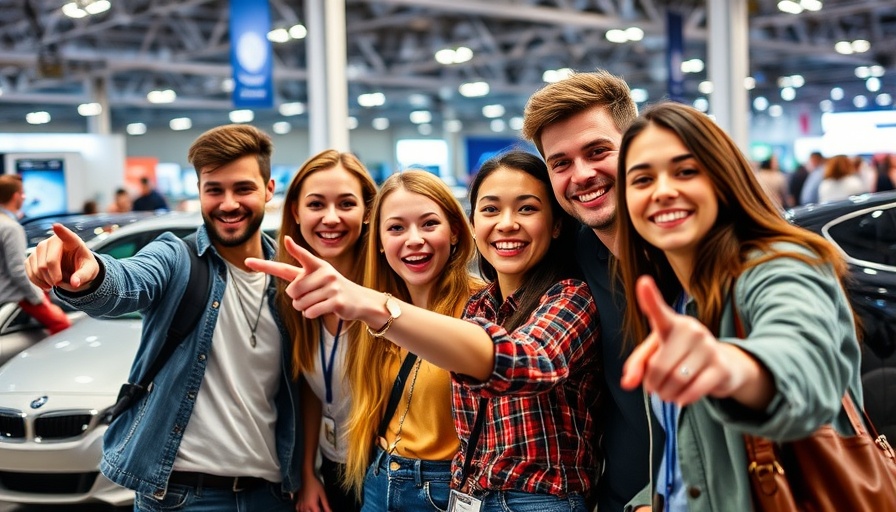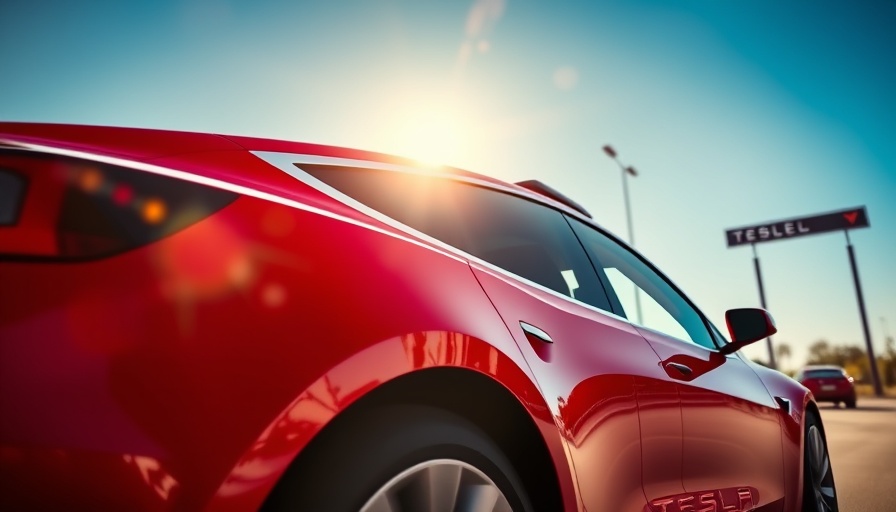
Are Our Beliefs About AI and Reality Colliding?
The recent viral video showcasing a fully AI-generated auto show raises unsettling questions about the intersection of technology and our understanding of reality. Produced by László Gaál using advanced tools like Veo3 and Google DeepMind, the video presents a hyper-realistic experience where AI-generated people, cars, and dialogues mimic actual human interactions at an auto show. This seamless blending of AI-generated content and realism challenges our traditional notions of how events are perceived in our changing media landscape.
The Shift in Auto Show Dynamics
Traditionally, auto shows were monumental events for car enthusiasts and industry professionals alike—showcasing innovative designs and groundbreaking technologies. However, the decline in attendance and interest in these events reflects a broader shift in consumer engagement influenced by digital experiences. Where consumers once gathered in large numbers, they are now staring at screens, falling prey to AI presentations that recreate the energy of an auto show without the physical presence. Is this a sign of progress or a critical loss of human interaction?
Technological Innovations Breaking Boundaries
The rise of AI-generated content is not merely a novelty; it represents a transformational step in how technology reshapes experiences across industries. The capabilities demonstrated in Gaál's video echo conversations that have long circulated in tech circles—AI's potential to revolutionize not just content creation but consumer engagement on a massive scale. By using single text prompts to produce complete videos, creators can fabricate immersive experiences that challenge our perceptions of authenticity.
The Power of AI: Ethical Implications and Consumer Trust
While the video showcases impressive technology, scepticism looms over its implications for ethics and consumer trust. How do we discern between genuine human perspectives and fabricated AI constructs? As consumers, our tendency to connect emotionally with content may become clouded by the fact that AI can emotionally manipulate or create false personas. This eerily replicates reality not just as entertainment but as a potential avenue for misinformation.
What Lies Ahead for the Automotive Landscape?
The auto industry must navigate its future amid rapid technological change. With AI becoming a driving force in marketing and presentation, the need for transparency and authenticity is paramount. As audiences become increasingly discerning, automotive companies will face pressure to not only innovate with technology but also maintain a genuine connection with their customer base.
Final Thoughts: Engaging with Tomorrow's Technology
As we step into this transformation, a proactive approach towards understanding AI's capabilities is essential for both consumers and producers. Videos like Gaál's should evoke curiosity—not fear. By embracing these advancements while critically examining their implications, we can ensure that technology serves to enhance our experiences rather than manipulate them. The changes we've seen could redefine our relationship with the automotive world, urging automotive enthusiasts to adapt to a landscape where reality and virtuality meet.
It's time to engage in conversations about technology's role in our lives and steer towards a future where AI and human creativity coexist harmoniously.
 Add Row
Add Row  Add
Add 




 Add Row
Add Row  Add
Add 

Write A Comment